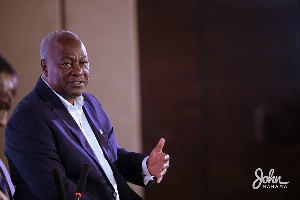Dr. Mark Assibey-Yeboah, the former Member of Parliament (MP) for the New Juaben South Constituency has lauded a significant initiative by the government aimed at transforming the country’s tax system which is the implementation of a flat-rate tax regime.
He emphasised that the current inconsistencies in tax rates have led many business owners to evade their tax responsibilities, resulting in substantial revenue shortfalls for the government.
“Many businesses find the current tax system complicated and inconsistent, which leads to tax evasion. By introducing a flat-rate tax, we can simplify the process and create a more transparent system that encourages compliance,” Assibey-Yeboah explained.
The former MP outlined the myriad advantages this new initiative could bring to both the government and the business community.
He pointed out that a flat tax would create a fairer tax environment, making it easier for individuals and businesses to understand their obligations.
“This will not only boost government revenues but also instill a sense of fairness in the tax system,” he added.
Assibey-Yeboah highlighted the current tax-to-GDP ratio, which stands at a relatively low 12%.
“This is not just a number; it reflects the need for reform. By implementing a flat-rate tax, we hope to motivate more individuals to file their tax returns,” he said on Okay FM as monitored by MyNewsGH.com.
"The intention is clear; a simplified tax structure could lead to higher compliance rates, ultimately improving the country’s economic outlook.
"In addition to benefiting the government, the proposed flat-rate tax is designed to ease the financial burden on small business owners.
“This initiative is particularly beneficial for small businesses that often struggle with navigating the complexities of our current tax system,” Assibey-Yeboah stated.
“A flat tax could provide them with the stability and predictability they need to thrive.”
While the proposal has generated excitement among some stakeholders, it also raises questions about the potential impact on government services and the broader economy. Critics argue that a flat tax might disproportionately benefit wealthier individuals while neglecting those who may need more support.
However, Assibey-Yeboah remains optimistic about the initiative’s potential to reshape Ghana’s tax landscape.
“Change is always met with skepticism, but we believe this is a step in the right direction.
“By fostering a culture of compliance and accountability, we can ensure that our country’s revenue system works for everyone,” he concluded.
Business News of Saturday, 2 November 2024
Source: mynewsgh.com

















